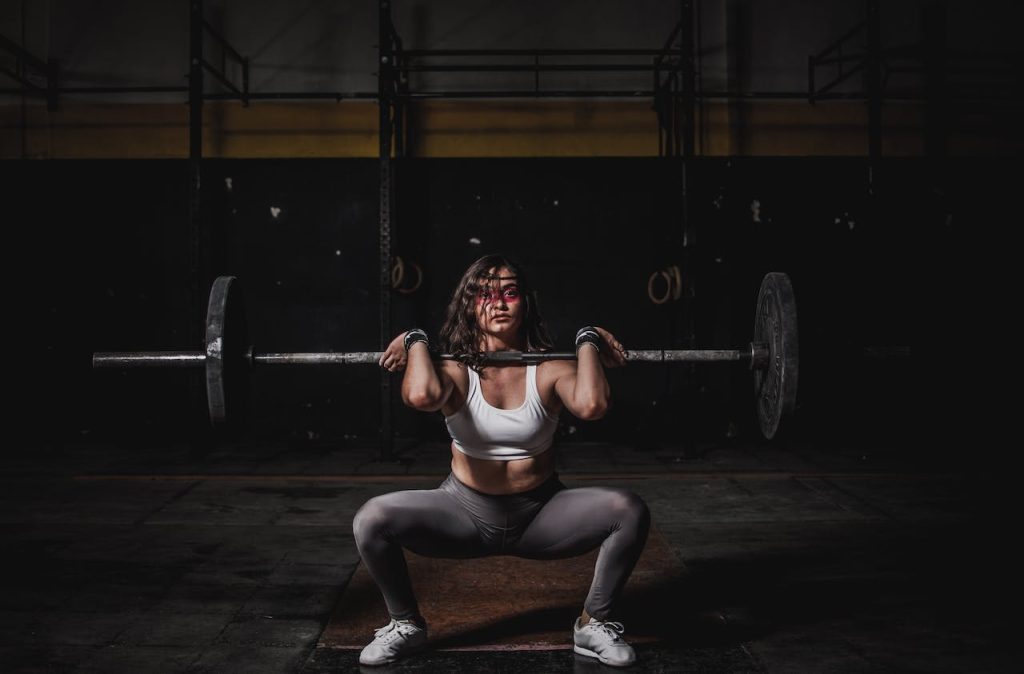Geschatte leestijd: 4 minuten
Researchers compared choices about your post-workout meal before the workout and immediately after the workout. Would it make a difference to your discipline?
Post-workout meal or post-workout junk?
You’re probably familiar with the saying: “Never go grocery shopping when you’re hungry.” According to a similar principle, it might be wise to have your post-workout meal ready.
Researchers from the University of Nebraska-Lincoln wondered if it would make a difference if you chose your post-workout meal before or after the workout. An apple or a brownie? Are you continuing the good line of your training or is the health hour over?
To answer this question, they divided 256 young men and women (average age 22 years) into two groups. Both groups were given an accelerometer, supposedly to calibrate it during their usual workouts such as cardio or strength training. However, the accelerometer wasn’t the focus. One group was given the choice between an apple or a brownie after the workout, “as a reward for wearing the device.” The other group was given this choice after the workout.
Apple or brownie?
About 74 percent of the participants who were given the choice beforehand opted for an apple. This was 55 percent in the group that was asked this question afterwards. The chance of choosing the healthy option was thus about a third lower. In the group allowed to choose beforehand, 14 percent chose the brownie. In the group allowed to choose afterwards, this was 20 percent.
According to the researchers, the results suggest that making the simple choice beforehand may increase the likelihood of making healthier choices for what you eat after a workout.
If your goal is to lose weight, then I would say our findings support that you’re better off making the choice before you go to the gym.
Koehler, Department of Nutrition and Health Sciences.
Less hunger after the workout or moral compensation?
The researchers tried to find out which of the conflicting theories about eating after the workout are borne out in practice.
One theory suggests that your appetite immediately following a workout is lower. The other theory assumes a tendency to compensate for your good behavior by engaging in less good behavior later. Like making a less wise choice in what you eat.
We’ve described this second theory (and the studies that have demonstrated it) here before, like the article on moral compensation. Many will recognize it in both training and nutrition as well as in other aspects of life. You work out for an hour and sit down for coffee with friends an hour later. You’ll take the pastry that you would have passed up otherwise because you want to stick to a diet. “I deserve it.”
Aside from that ‘moral’ consideration, you might just be hungrier because you’ve exercised. However, the researchers point to previous research that has shown conflicting results in this regard. In a 1999 review, the outcomes of studies on eating behavior and appetite after exercise were compared [2]. An increased food intake was observed in only 19 percent of the studies compared. In most cases, 65 percent, no difference was observed.
Exercise-induced anorexia
In 16 percent of the studies, people ate less. The tendency to eat less, especially immediately after a workout, was also demonstrated by the same researchers in 1999. Also known as ‘Exercise-induced anorexia.’
That sounds scarier than it is. A temporarily suppressed appetite possibly due to changes in levels of the ‘hunger hormone’ ghrelin.
Personally, sometimes I can think about food halfway through a workout, and other times I can have no appetite at all after a grueling workout.
In the ‘apple or brownie study,’ the researchers also saw both theories in practice. There was a (modest) 6% increase in people choosing the brownie after the workout. That seems to indicate compensatory behavior.
There was a clearer indication of reduced appetite. There were also participants who chose not to have a snack at all. In the group that chose beforehand, this was only 12 percent. In the group that chose immediately after the workout, 25 percent didn’t want a snack.
Meal prep
But whether you’re hungrier or not, your appetite remains an impulse. How you respond to it can be influenced by planning. It’s no wonder that Tupperware containers are a staple ingredient of the average fitness account on Instagram.
For bodybuilders and fitness models, meal prep has been one of the most important factors for success for decades. Making sure you have the right food on hand when you’re hungry. Turning your healthy food into fast food by preparing and planning it in advance.
Personally, I don’t do meal prep, but then I don’t compete either. However, there is one exception, and that’s the shake I prepare for immediately after the workout. So it doesn’t matter whether I’m more or less hungry right after the workout. In both cases, my immediate meal is the same.
To be continued…
In further research, the researchers
want to learn more about the difference between people who exhibit compensatory eating behavior and those who eat less after the workout. They want to approach reality more closely by offering a wider choice of food. Perhaps that brownie was rejected because a participant already had a slice of pizza in mind.
References
- Christopher Gustafson, Nigina Rakhmatullaeva, Safiya Beckford, Ajai Ammachathram, Alexander Cristobal, Karsten Koehler. Exercise and the Timing of Snack Choice: Healthy Snack Choice is Reduced in the Post-Exercise State. Nutrients, 2018; 10 (12): 1941 DOI: 10.3390/nu10121941
- Blundell, J.E.; King, N.A. Physical activity and regulation of food intake: Current evidence. Med. Sci. Sports Exerc. 1999, 31, S573–S583.
- Bellisle, F. Food choice, appetite and physical activity. Public Health Nutr. 1999, 2, 357–361.

